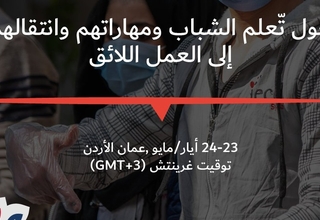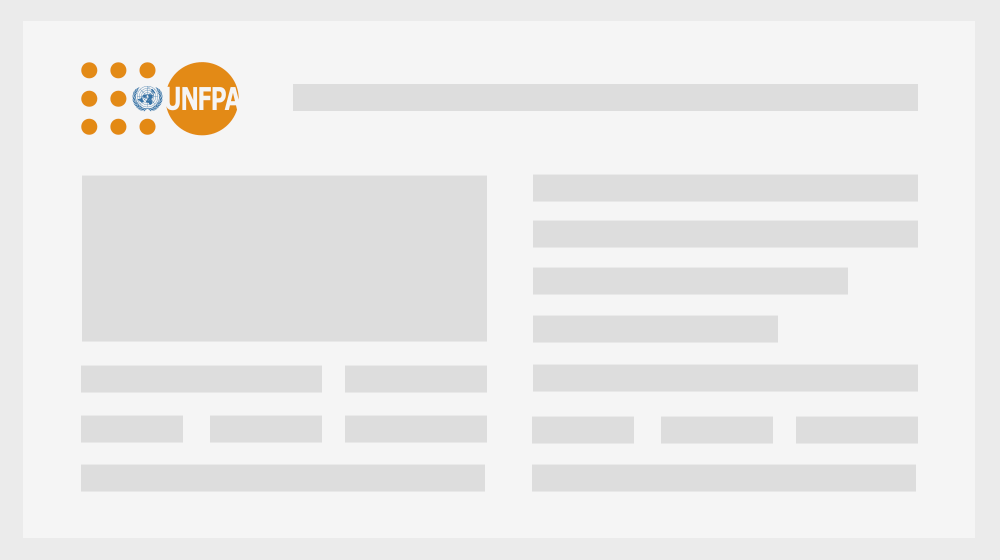Addressing Inequalities, Quality and Accountability; Focusing on Young People
Adolescents and Youth
· More than 40 per cent of the world’s population are under 25, they are shaping both humanity’s future, and its present. UNFPA is the lead United Nations agency working in over 150 countries to promote the sexual and reproductive health and reproductive rights of young people. We are committed to ensuring that young people have the information, services and supplies they need to make a safe, healthy and fulfilling transition from adolescence to adulthood. We see this as a moral obligation as well as a social, economic and political necessity.
UNFPA’s Commitment to Family Planning
· Ongoing commitment to family planning remains at the heart of UNFPA’s work because it is an essential human right which we know unlocks unprecedented rewards for development. Family planning saves lives, it empowers women and girls to make choices, to seek and stay in education, to participate fully in society and contribute to the economy. Women and their children live healthier, longer lives because of it and nations are stronger, safer, and more prosperous.
The Post-2015 Development Agenda
· When women and girls survive, families and communities thrive. When women and girls fulfill their potential, countries prosper. The future success of the global development agenda rests on meeting the needs and ensuring the rights of women and girls. UNFPA is committed to making this happen. Governments and other stakeholders must make bold and decisive commitments to do the same.
Progress Made
· UNFPA is encouraged and inspired by the efforts that countries have made and the results they have achieved in sexual and reproductive health, including family planning. Governments have increased resources allocated for sexual and reproductive health; increased availability of life-saving medicines and service delivery points; improved supply chains and expanded the choice of modern contraceptive methods. UNFPA fully supports these efforts and continues to provide expert technical advice and guidance to set the stage for effective, holistic, person-centered health care. So that all people, particularly women and girls, can take control of their bodies and their lives.
What is UNFPA’s position in the family planning landscape?
Leadership, credibility and reach
UNFPA is the longest-serving multi-lateral agency leading in the field of family planning for over 40 years and supporting ongoing family planning progress in more than 150 countries, ensuring that women and girls have the right to sexual and reproductive health and to choices that allow them to fulfill their greatest potential.
Since UNFPA began operations in 1969, average global fertility has halved and UNFPA has been a critical catalyst in this success. We continue to build on this success, focusing now on the poorest countries where the need is greatest and on the most vulnerable communities, particularly women and girls.
And we’re seeing results:
· The use of modern methods of family planning has continued to increase as have government resources allocated for Sexual and Reproductive Health including contraceptives.
· Countries like Burundi, Burkina Faso, Lao, Ethiopia, Mali, Madagascar, Sierra Leone and even Haiti, recovering from a devastating earthquake, have all seen increases in contraceptive prevalence rates, increases in service delivery points offering at least three methods of contraception and increases in budget allocations for reproductive health commodities.
· Essential life-saving maternal health medicines are increasingly available in health facilities.
What is UNFPA’s focus?
· UNFPA promotes and supports access to family planning by marginalized and vulnerable groups, especially women and adolescent girls.
· We focus on programmes that meet human rights, ethics and public health standards, including the use of contraceptives.
· UNFPA is committed to support adolescents and young people, so they have access to comprehensive sexuality education and SRHR services—including contraceptives—that are confidential, free of coercion and violence.
· UNFPA is promoting a new comprehensive approach to addressing the challenge of adolescent pregnancy that doesn’t focus only on changing the behavior of the girl, but changes the behavior of the society she lives in.
· We support young people, offer information and services to back their decisions and not merely supply contraceptives.
What must be done to ensure young people have access to comprehensive sexuality education and SRHR services?
· We must tear down the social, economic and geographic barriers that block girls’ access to information and services to enable her to make choices to prevent pregnancy.
We need to intervene in ways that help the most vulnerable, especially girls between the ages of 10 and 14 who need support that builds their agency and protects their rights.
If we do a better job of upholding the rights of every girl and empowering them to claim their rights, we can eliminate many of the conditions that contribute to adolescent pregnancy.
· Removing legal and policy barriers for adolescents and youth to have access to affordable, quality contraceptive services is one of the key interventions to address adolescent pregnancy.
What is UNFPA Doing to support this?
· UNFPA advocates for the revision of national legislations, policies and regulations that prevent adolescents and youth access to services including revising the age and marital consent for use of contraceptives.
· UNFPA supports countries to integrate sexual and reproductive health—including family planning—in national development frameworks to ensure that such issues receive the necessary political and financial attention.
· In 2012 the number of countries that had national development plans and poverty reduction strategies that address population dynamics and its linkages with the needs of young people including adolescents, SRH, gender equality and sustainable development and poverty reduction increased to 59 (from 49 in 2008).
What are the most important gains to be made through family planning?
· Family planning saves lives.
• Family planning saves lives. Universal access to family planning would help prevent:
o 54 million unintended pregnancies
o 26 million abortions
o 7 million miscarriages
o 79, 000 maternal deaths
o 1.1 million infant deaths
· Family planning improves lives.
o By enabling women, couples and adolescents to choose the number and spacing of their children, family planning has changed how women seek education, empowerment and economic activities.
o Not only does family planning improve health and save lives, it is also extremely cost-effective. Investing an additional 14.1 billion dollars to meet the unmet need for family planning would save roughly $5.7 billion dollars in maternal and newborn healthcare that would no longer be needed.
o Women who have access to family planning, use family planning, resulting in smaller families, higher educational attainment, healthier children, greater economic power as well as influence in their households and communities.
In UNFPA’s view, what is the benefit of the FP2020 initiative?
· As an organization that has been working on family planning since 1969, UNFPA welcomes the establishment of this global partnership as a means to further advance efforts in the family planning area, by ensuring that governments, civil society, multi-lateral organizations, donors, the private sector, and the research and development community come together to empower women and girls to decide whether and when to have children.
· Family Planning 2020 supports and amplifies efforts already undertaken by countries and organizations, by ensuring stronger coherence of action towards the common goal of providing an additional 120 million women and girls in the world’s poorest countries with access to voluntary family planning information, services and contraceptives by the year 2020.



